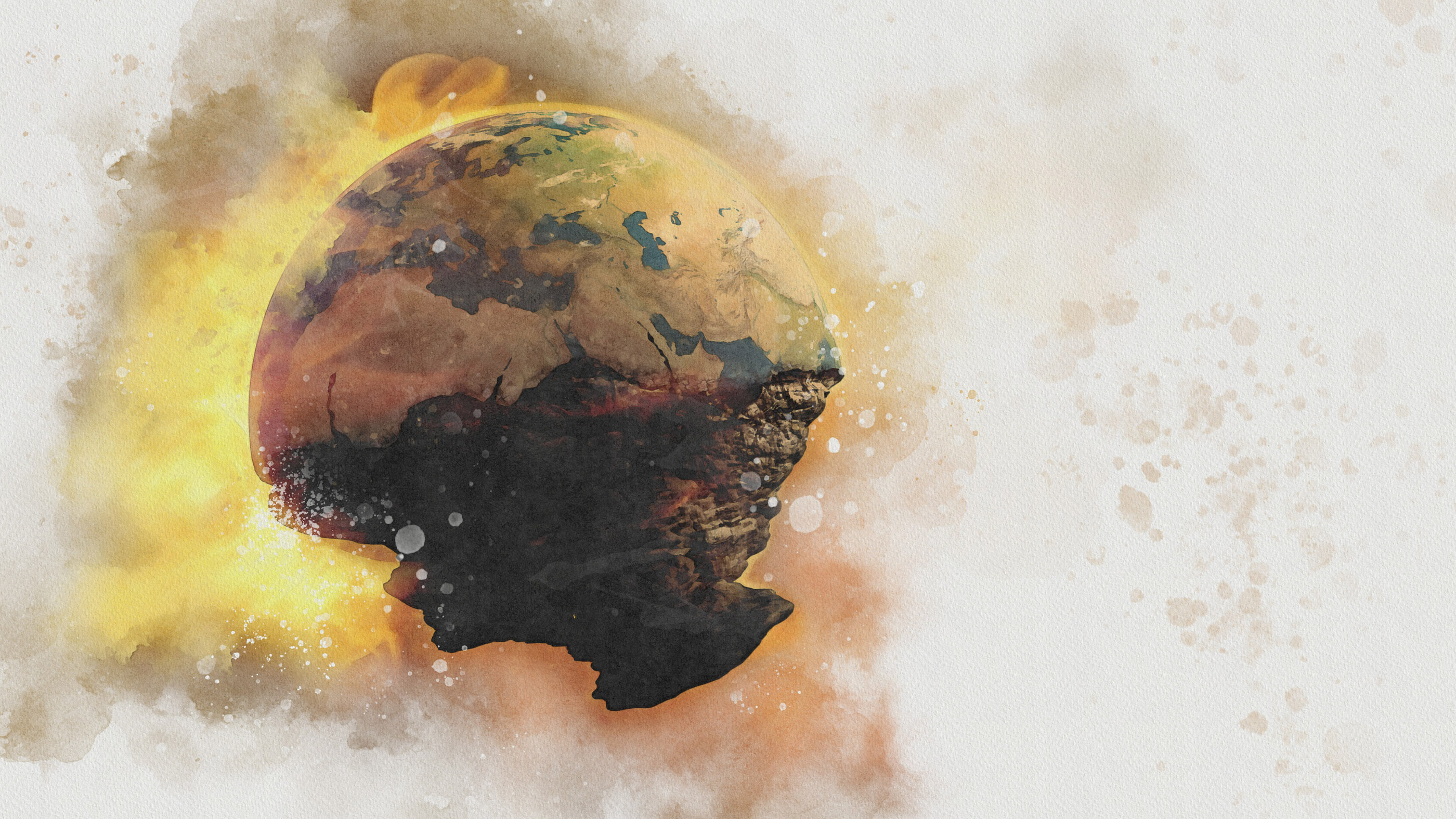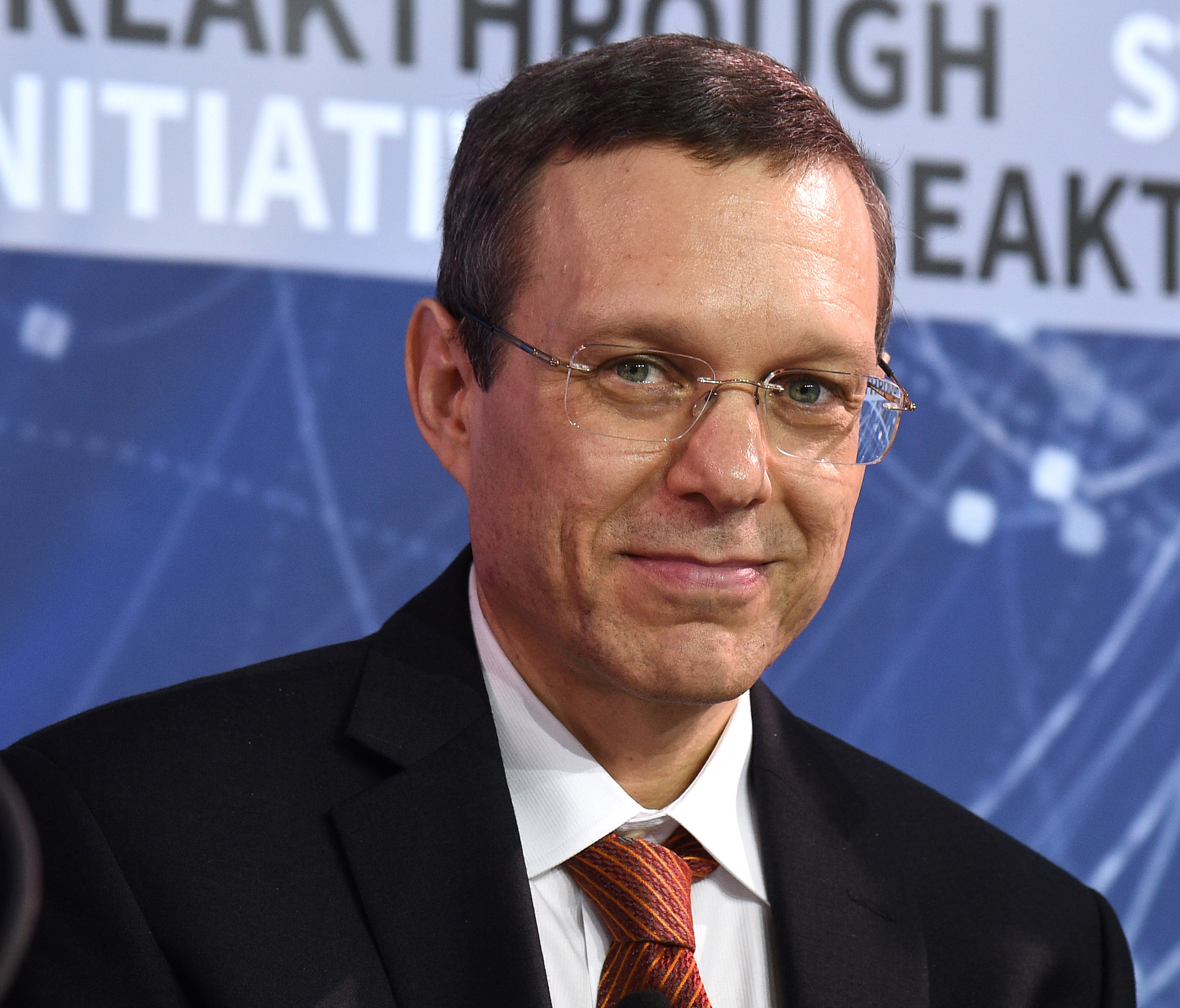
My advice to young scientists who seek a sense of purpose in their research is to engage in a topic that matters to society, such as moderating climate change, streamlining the development of vaccines, satisfying our energy or food needs, establishing a sustainable base in space or finding technological relics of alien civilizations. Broadly speaking, society funds science, and scientists should reciprocate by attending to the public’s interests.
The most vital societal challenge is to extend the longevity of humanity. At a recent lecture to Harvard alumni I was asked how long I expect our technological civilization to survive. My response was based on the fact that we usually find ourselves around the middle part of our lives, as originally argued by Richard Gott. The chance of being an infant on the first day after birth is tens of thousand times smaller than of being an adult. It is equally unlikely to live merely a century after the beginning of our technological era if this phase is going to last millions of years into the future. In the more likely case that we are currently witnessing the adulthood of our technological lifespan, we are likely to survive a few centuries but not much longer. After stating this statistical verdict publicly, I realized what a horrifying forecast it entails. But is our statistical fate inevitable?
There is a silver lining lurking in the background. It involves the possibility that we possess free will and can respond to deteriorating conditions by promoting a longer future than a few centuries. Wise public policy could mitigate the risk from technological catastrophes associated with climate change, self-inflicted pandemics or wars.
It is unclear whether our policy makers will actually respond to the challenges that lie ahead and save us from the above statistical verdict. Humans are not good at coping with risks they have never encountered before, as exemplified by the politics of climate change.
This brings us back to the fatalistic view. The Standard Model of physics presumes that we are all made of elementary particles with no additional constituents. As such composite systems, we do not possess freedom at a fundamental level, because all particles and their interactions follow the laws of physics. Given that perspective, what we interpret as "free will" merely encapsulates uncertainties associated with the complex set of circumstances that affect human actions. These uncertainties are substantial on the scale of an individual but average out when dealing with a large sample. Humans and their complex interactions evade a sense of predictability at the personal level, but perhaps the destiny of our civilization as a whole is shaped by our past in an inevitable statistical sense.
The forecast of how much time we have left in our technological future could then follow from statistical information about the fate of civilizations like ours that predated us and lived under similar physical constraints. Most stars formed billions of years before the sun and may have fostered technological civilizations on their habitable planets that perished by now. If we had historical data on the life span of a large number of them, we could have calculated the likelihood of our civilization to survive for different periods of time. The approach would be similar to calibrating the likelihood of a radioactive atom to decay based on the documented behavior of numerous other atoms of the same type. In principle, we could gather related data by engaging in space archaeology and searching the sky for relics of dead technological civilizations. This would presume that the fate of our civilization is dictated by the physical constraints.
But once confronted with the probability distribution for survival, the human spirit may choose to defy all odds and behave as a statistical outlier. For example, our chance for survival could improve if some people choose to move away from Earth. Currently, all our eggs are in one basket. Venturing into space offers the advantage of preserving our civilization from a single-planet disaster. Although Earth serves as a comfortable home at the moment, we will ultimately be forced to relocate because the sun will boil off all liquid water on our planet’s surface within a billion years. Establishing multiple communities of humans on other worlds would resemble the duplication of the Bible by the Gutenberg printing press around 1455, which prevented loss of precious content through a single-point catastrophe.
Get the world’s most fascinating discoveries delivered straight to your inbox.
Of course, even a short-distance travel from Earth to Mars raises major health hazards from cosmic rays, energetic solar particles, UV radiation, lack of a breathable atmosphere and low gravity. Overcoming the challenges of settling on Mars will also improve our ability to recognize terraformed planets around other stars based on our own experience. Despite this vision, being conscious of challenges on Earth might deter humanity from embracing a bold perspective on space travel. One can argue that we have enough problems at home and ask: “Why waste valuable time and money on space ventures that are not devoted to our most urgent needs right here on planet Earth?”
Before surrendering to this premise, we should recognize that attending strictly to mundane goals will not provide us with the broader skill set necessary to adapt to changing circumstances in the long run. A narrow focus on temporary irritants would resemble historical obsessions that ended up being irrelevant, such as “How can we remove the increasing volumes of horse manure from city streets?” before the automobile was invented or “How do you construct a huge physical grid of telephone landlines?” before the cell phone was invented.
True, we must focus our immediate attention on local problems, but we also need inspiration that elevates our perspective to a grander scale and opens new horizons. Narrowing our field of view drives us to conflicts because it amplifies our differences and limited resources. Instead, a broader perspective fosters cooperation in response to global challenges. And there is no better fit for such a perspective than science, the “infinite-sum game” that can extend the life span of humanity. As Oscar Wilde noted: “We are all in the gutter, but some of us are looking at the stars”. Here’s hoping for more of us looking up. The inspiration gained from that view might carry us well beyond the statistical forecast that impels the fatalistic alternative.
Read more about the coronavirus outbreak from Scientific American here. And read coverage from our international network of magazines here.
This article was first published at ScientificAmerican.com. © ScientificAmerican.com. All rights reserved. Follow Scientific American on Twitter @SciAm and @SciamBlogs. Visit ScientificAmerican.com for the latest in science, health and technology news.

Avi Loeb is an astrophysicist and the Frank B. Baird Jr. Professor of Science at Harvard University, where he was formerly the chair of the Department of Astronomy. Avi received a Ph.D. in plasma physics at age 24 from the Hebrew University of Jerusalem (1986), and became a long-term member at the independent research organization, Institute for Advanced Study in Princeton, New Jersey (1988-1993), where he started to work in theoretical astrophysics. In 1993, he moved to Harvard University where he was tenured three years later. He also holds a visiting professorship at the Weizmann Institute of Science and a Sackler Senior Professorship by special appointment in the School of Physics and Astronomy at Tel Aviv University.
Loeb has authored nearly 700 research articles and four books. See a list of his publications on his professional site.

